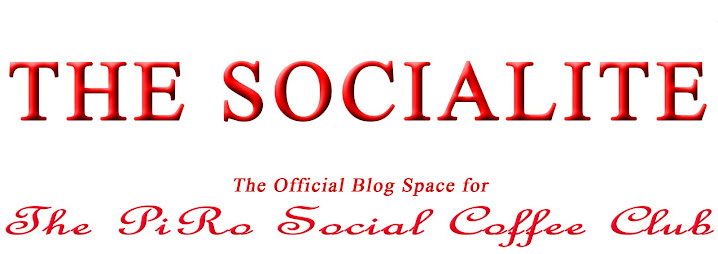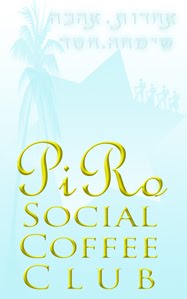This Monday President Obama hosts his second White House seder in as many years. As a Jewish American I am grateful to the President for highlighting the festival of Jewish emancipation and peoplehood. But given a choice, I would readily forego the White House Manischewitz in exchange for an end to the bitter herbs the President is dishing out to Israel. Publicly shunning the Israeli Prime Minister and privately berating him is not going to be forgiven because of gefilte fish and matza balls. You want to show American Jewry some respect, Mr. President, then stop treating the elected leader of the Jewish state like Pharaoh.
I received my own lesson this week about how to treat those with whom you sharply disagree. I was in Italy to promote the Italian translation of my book The Michael Jackson Tapes. Gary Krupp, the New York-based Jewish papal knight of whom I had been sharply critical for defending Pius XII, went out of his way to arrange for me to be invited to the Vatican to see documents relating to Pius’ pontificate. When I arrived, just one week before good Friday, although the Vatican was under siege with international press reports of pedophile priests, Monsignor Livio Poloniato, who works in the Cardinal Secretary of State’s office, gave me hours of his time to show me around. Here I was, an unrelenting critic for over a decade of a Pope whom the Holy See is seeking to canonize. Yet, the high-ranking Priests I met could not have been friendlier. From Msgr. Fortunatus Nwachukwu, who is Chief of Vatican Protocol, to American members of the curia who have lived away from home for twenty years, everyone I met showed kindness and warmth. The visit did not change my view of Pius XII, whom I continue to view as guilty of the foremost moral omission of the twentieth century in refusing to even once speak out against the holocaust. But it did get me thinking.
As I walked the streets of Rome over the Sabbath, I contrasted the warm welcome accorded a leading Papal critic with that of President Obama’s disdainful treatment of the democratically-elected leader of the Jewish State, Binyamin Netanyahu. If the reports are true and President Obama got up and left in middle of his meeting with Netanyahu at the White House, derisively telling him he was going to have dinner with his family and telling the Prime Minister to ‘get back to me if you have anything new,’ then as an American I am ashamed of our President’s behavior. As a Jew I am scandalized by his contempt. Yes, having dinner with your kids is very important and constitutes the main objective behind my national ‘Turn Friday Night Into Family Night’ initiative. But to use your kids as an excuse to treat a guest like garbage is repellant and constitutes a terrible lesson to the children.
And all this because the President so readily dismisses the Jewish insistence on holding on to a capitol we established three thousand years ago and have prayed to return to thrice daily ever since the Romans forcibly ejected us in the year 70.
There was a time, not long ago, when, while disagreeing with many of the President’s policies, I found him inspiring. Here was a man who never had the love of a father who overcame immense obstacles to emerge temperate, committed to the common good, and a devoted husband and father. As a lover of great oratory I was moved the President’s eloquence and passion. I penned a much-circulated column praising his decision to stop using the name Barrie and return to his given name, Barack. I wrote that all Jews – who so often hide their identities by changing their names – should learn pride from our President.
Sadly, I am now beginning to question Obama’s very character. Am I to look up to a President who treats Netanyahu like a Mexican cartel kingpin, refusing to greet him publicly, share a press conference, or even take a single picture with him? Is our president ignorant of basic manners? Perhaps we should be grateful that the President even allowed Netanyahu into the country. Since the Arabs are famously celebrated for their hospitality, perhaps on his next meeting with King Abdullah of Saudi Arabia President Obama can skip the bow and inquire instead as to how to treat a guest.
Remember the way the President treated the Dalai Lama this past February? Fearing upsetting the bullying Chinese, Obama similarly refused to publicly greet a fellow Nobel Peace laureate whom the world regards as its foremost humanitarian. No pictures, no press conference, no public welcome. To cap it off, he made the leader of Tibet leave through a staff kitchen entrance that was strewn with giant bags of garbage.
All this reinforces my growing suspicion that President Obama not only lacks a commitment to a moral foreign policy that champions freedom and democracy, but, when you cross him, even a commitment to basic courtesy. Cross the man and all that charm turns to ice.
I hope that as the President reads the words of the Haggadah this year he will focus on the very last line of the evening. It’s just four words, easy to remember, and it’s something the Jews have been saying six hundreds years before Islam came into existence. “Next year in Jerusalem.”
__________________________________________________________________________
Rabbi Shmuley Boteach is the founder of This World: The Values Network. He has just published ‘The Blessing of Enough: Rejecting Material Greed, Embracing Spiritual Hunger. www.shmuley.com
I received my own lesson this week about how to treat those with whom you sharply disagree. I was in Italy to promote the Italian translation of my book The Michael Jackson Tapes. Gary Krupp, the New York-based Jewish papal knight of whom I had been sharply critical for defending Pius XII, went out of his way to arrange for me to be invited to the Vatican to see documents relating to Pius’ pontificate. When I arrived, just one week before good Friday, although the Vatican was under siege with international press reports of pedophile priests, Monsignor Livio Poloniato, who works in the Cardinal Secretary of State’s office, gave me hours of his time to show me around. Here I was, an unrelenting critic for over a decade of a Pope whom the Holy See is seeking to canonize. Yet, the high-ranking Priests I met could not have been friendlier. From Msgr. Fortunatus Nwachukwu, who is Chief of Vatican Protocol, to American members of the curia who have lived away from home for twenty years, everyone I met showed kindness and warmth. The visit did not change my view of Pius XII, whom I continue to view as guilty of the foremost moral omission of the twentieth century in refusing to even once speak out against the holocaust. But it did get me thinking.
As I walked the streets of Rome over the Sabbath, I contrasted the warm welcome accorded a leading Papal critic with that of President Obama’s disdainful treatment of the democratically-elected leader of the Jewish State, Binyamin Netanyahu. If the reports are true and President Obama got up and left in middle of his meeting with Netanyahu at the White House, derisively telling him he was going to have dinner with his family and telling the Prime Minister to ‘get back to me if you have anything new,’ then as an American I am ashamed of our President’s behavior. As a Jew I am scandalized by his contempt. Yes, having dinner with your kids is very important and constitutes the main objective behind my national ‘Turn Friday Night Into Family Night’ initiative. But to use your kids as an excuse to treat a guest like garbage is repellant and constitutes a terrible lesson to the children.
And all this because the President so readily dismisses the Jewish insistence on holding on to a capitol we established three thousand years ago and have prayed to return to thrice daily ever since the Romans forcibly ejected us in the year 70.
There was a time, not long ago, when, while disagreeing with many of the President’s policies, I found him inspiring. Here was a man who never had the love of a father who overcame immense obstacles to emerge temperate, committed to the common good, and a devoted husband and father. As a lover of great oratory I was moved the President’s eloquence and passion. I penned a much-circulated column praising his decision to stop using the name Barrie and return to his given name, Barack. I wrote that all Jews – who so often hide their identities by changing their names – should learn pride from our President.
Sadly, I am now beginning to question Obama’s very character. Am I to look up to a President who treats Netanyahu like a Mexican cartel kingpin, refusing to greet him publicly, share a press conference, or even take a single picture with him? Is our president ignorant of basic manners? Perhaps we should be grateful that the President even allowed Netanyahu into the country. Since the Arabs are famously celebrated for their hospitality, perhaps on his next meeting with King Abdullah of Saudi Arabia President Obama can skip the bow and inquire instead as to how to treat a guest.
Remember the way the President treated the Dalai Lama this past February? Fearing upsetting the bullying Chinese, Obama similarly refused to publicly greet a fellow Nobel Peace laureate whom the world regards as its foremost humanitarian. No pictures, no press conference, no public welcome. To cap it off, he made the leader of Tibet leave through a staff kitchen entrance that was strewn with giant bags of garbage.
All this reinforces my growing suspicion that President Obama not only lacks a commitment to a moral foreign policy that champions freedom and democracy, but, when you cross him, even a commitment to basic courtesy. Cross the man and all that charm turns to ice.
I hope that as the President reads the words of the Haggadah this year he will focus on the very last line of the evening. It’s just four words, easy to remember, and it’s something the Jews have been saying six hundreds years before Islam came into existence. “Next year in Jerusalem.”
__________________________________________________________________________
Rabbi Shmuley Boteach is the founder of This World: The Values Network. He has just published ‘The Blessing of Enough: Rejecting Material Greed, Embracing Spiritual Hunger. www.shmuley.com











